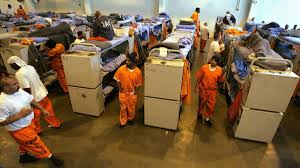Navigating the complex landscape of California’s DUI laws can be daunting, particularly when dealing with repeat offenses. California Vehicle Code §23550.5 is one such statute that addresses the ramifications for individuals caught driving under the influence (DUI) within ten years of a prior felony DUI conviction. If you find yourself in this situation, understanding the legal implications and penalties is crucial. From potential incarceration to hefty fines, the consequences are severe and underline the importance of consulting an Orange County DUI lawyer.

Understanding CVC §23550.5
Definition and Purpose
CVC §23550.5 is an important provision under California DUI laws specifically dealing with repeat DUI offenders. It addresses situations where an individual is convicted of driving under the influence (DUI) within ten years of a prior felony DUI conviction. The primary intent of this law is to enhance penalties for individuals who repeatedly endanger public safety by driving under the influence, particularly those with a history of severe offenses. By imposing stricter sanctions, California aims to discourage recidivism and protect its roads from dangerous drivers.
Comparison to Other DUI Laws
While California has a robust legal framework addressing DUI offenses, CVC §23550.5 stands out due to its focus on individuals with prior felony DUI convictions. Unlike standard DUI laws that may apply to first-time offenders or those with minor prior offenses, this section is specifically crafted to deal with more severe repeat offenses. For example, a typical first-time DUI in California might involve fines, probation, or a short driver’s license suspension. However, CVC §23550.5 involves significantly harsher penalties for those within the ten-year recidivism window, illustrating the state’s zero-tolerance stance on repeat offenders with a history of felony DUI convictions.
Consequences of a DUI Within Ten Years of a Felony Conviction

Legal Penalties
The legal penalties for violating CVC §23550.5 are notably severe. Individuals facing charges under this section can expect felony prosecution. This elevation from a misdemeanor to a felony comes with substantial ramifications such as potential imprisonment. Offenders may serve time in the California state prison which can range from 16 months to 3 years. In addition to incarceration, courts can impose hefty fines that can significantly impact the offender’s financial stability. The combination of incarceration and fines serves as a deterrent while also punishing those who violate this specific DUI law.
Impact on Driver’s License
A DUI conviction under CVC §23550.5 can lead to profound impacts on an individual’s driving privileges. The Department of Motor Vehicles (DMV) may impose a lengthy suspension of the driver’s license, often extending well beyond the duration of the incarceration term. The loss of driving privileges can severely affect an individual’s ability to maintain employment and fulfill daily responsibilities. It is crucial for offenders to understand that regaining their license is not a simple process and often involves satisfying various DMV requirements, including educational and rehabilitation programs.
Long-term Consequences
The implications of a DUI offense under CVC §23550.5 extend far beyond immediate legal penalties. Convicted individuals face long-term consequences that can alter the trajectory of their personal and professional lives. A felony record can hinder job opportunities, limit access to housing, and impact personal relationships. Furthermore, insurance rates often skyrocket following a DUI conviction, imposing an additional financial burden. The stigma associated with a felony DUI conviction can be difficult to overcome, making rehabilitation and reintegration into society challenging endeavors for offenders.
California DUI Laws Overview
Driving under the influence (DUI) is a serious offense in California, governed by strict laws designed to deter impaired driving and enhance public safety. The state has implemented a range of regulations that comprehensively address the complexities of DUI cases.
General DUI Regulations
In California, it is illegal to operate a motor vehicle with a blood alcohol concentration (BAC) of 0.08% or higher. For commercial drivers, the BAC limit is set at 0.04%, whereas for drivers under the age of 21, a zero-tolerance policy applies, meaning any detectable level of alcohol in the bloodstream may result in charges. In addition to alcohol, driving under the influence of drugs—whether legal, prescribed, or illegal—is equally prohibited and subject to the same penalties.
Felony DUI Conditions
A DUI can escalate from a misdemeanor to a felony under certain circumstances. Factors that typically warrant a felony charge include having multiple DUI offenses within a ten-year period, causing bodily harm or death while impaired, or having a prior felony DUI conviction. Specifically, a DUI within ten years of a felony conviction is treated with heightened severity under California Vehicle Code §23550.5. This statute underscores the state’s rigorous stance on preventing recidivism among DUI offenders.
Importance of Legal Representation by an Orange County DUI Attorney

If you face DUI charges, especially following a prior felony conviction, obtaining experienced legal representation is crucial. A knowledgeable Huntington Beach DUI lawyer can navigate the complexities of California DUI laws, advocate on your behalf, and potentially mitigate the charges or penalties you face. Understanding your rights and the legal process is essential in mounting an effective defense and ensuring fair treatment within the justice system.
Implications for Repeat DUI Offenders
Repeat DUI offenders encounter substantial legal and personal ramifications. California’s judicial system employs a structured approach aimed at discouraging repeat offenses and promoting public safety.
Increased Scrutiny and Monitoring
Individuals with repeated DUI convictions are subjected to increased scrutiny and stringent monitoring. This may involve mandatory installation of an ignition interlock device (IID) on any vehicle the offender drives, frequent court appearances, and stringent probation conditions. The IID requires the driver to pass a breathalyzer test before the vehicle will start, serving as a significant deterrent against driving while intoxicated.
Rehabilitation and Education Programs
To address the underlying issues contributing to repeat offenses, California mandates participation in alcohol education and rehabilitation programs for DUI offenders. These programs aim to instill responsible decision-making, increase awareness of the dangers of impaired driving, and provide support for addiction treatment if necessary. By focusing on rehabilitation alongside punitive measures, California seeks to reduce recidivism rates and encourage lasting behavioral changes in offenders.
Overall, California’s DUI laws underscore the gravity of impaired driving violations and emphasize a dual approach of punishment and rehabilitation to enhance road safety and reduce DUI-related incidents.
Conclusion
In conclusion, navigating the legal implications of a DUI offense in California, particularly under CVC §23550.5, necessitates a comprehensive understanding of the state’s stringent laws. If you’re facing charges for a DUI within ten years of a felony conviction, the penalties can be severe, emphasizing the importance of responsible decision-making. Consulting an experienced Huntington Beach DUI attorney can be crucial in exploring your options, understanding potential defenses, and securing legal representation to help mitigate the consequences. Remember, being informed and making wise choices now can significantly impact your future.